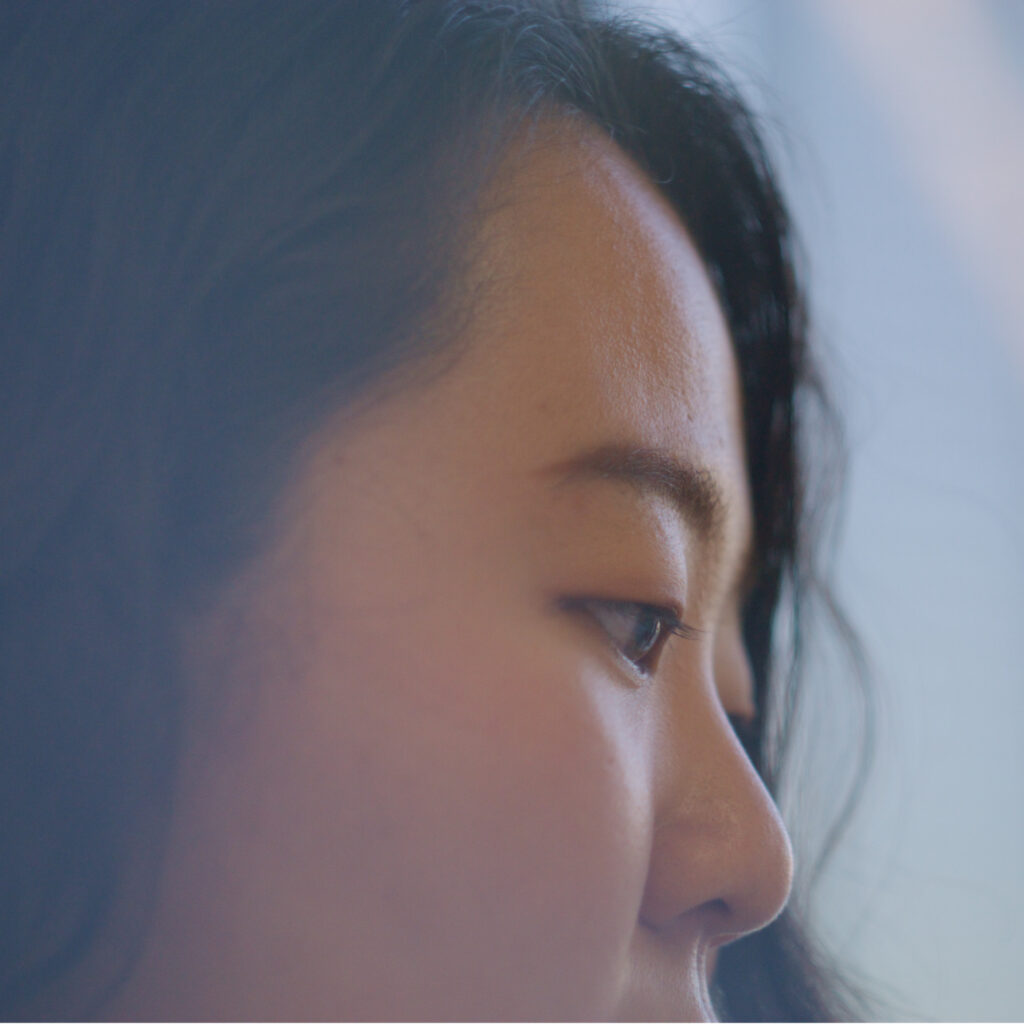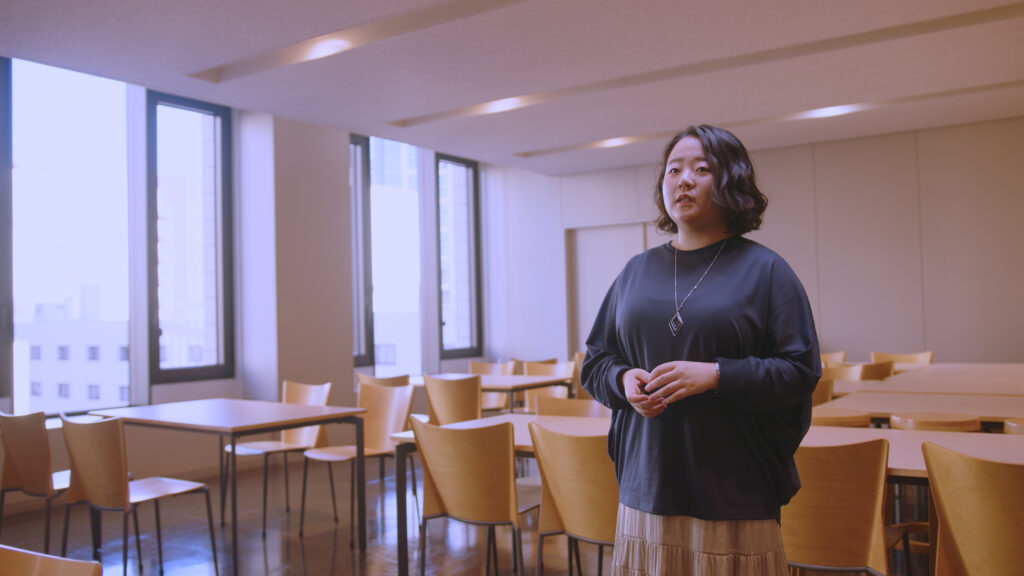Seeing the world through another’s eyes is akin to reading their mind

Aine Takahashi, a senior in the Department of Psychology, says, “During my time at Sophia, there was a moment when the way I viewed others changed completely.” Studying alongside international students, tackling challenging assignments, and volunteering her free time to help less-fortunate children have given her the essential skills that will help her to reach her lifelong dream of becoming a clinical psychologist.
Inspired to study psychology after being told, “you can never tell what’s in a person’s heart”
One thing that all departments in the Faculty of Human Sciences have in common is that they are centered on relationships between people. It is an interesting faculty where you can learn about how the ideas of psychology are useful in various fields like social welfare and nursing, and how the ideas of education influence psychology.
I chose the Department of Psychology because it has been my dream to have a career as a licensed clinical psychologist. I first became interested in psychology and psychologists when I was in middle school. Being able to discuss the emotional turmoil I had been carrying around since elementary school with my school counselor made me feel much better. I felt a great sense of relief to have someone listen to me, and at times it felt like she could read my mind since she was able to describe my feelings exactly.
However, when I mentioned this to her, she said something striking: “you can never tell what is in a person’s heart.” This remark made a lasting impression on me, and from then on, I decided that I wanted to be on the other side and become a psychologist. The counselor I met with was a graduate of Sophia University’s Psychology Department, so I decided to follow in her footsteps and study at Sophia University.
Before entering Sophia University, I was under the impression that if I studied psychology, I would gain the ability to appear as if I could read people’s minds. However, through my four years of study, my understanding of people and psychology has evolved. I have come to realize that psychology is not the study of guessing who a person is, and their situation.
Rather, it focuses all its efforts on understanding what a person is feeling in a specific moment of time. In my classes, we learned about the differences between animals and humans. The abilities that make us human, such as memory and facial recognition, was a main topic, but we also covered the hardships and suffering of those whose abilities as a human have been damaged. My awareness of the unique natures of humanity has grown since taking these psychology courses, and it’s something I think about often in my daily life.
Viewing situations from the perspective of others changed my feelings towards them

One class that left a strong impression on me was Psychological Research Methods. This class focused on the Rorschach test, a psychological test that determines a patient’s personality based on their interpretation of a series of ink stains. Alongside our standard lectures, our professor assigned us a weekly book report. Even though my psychologist had informed me that there would be a lot of assigned reading in my first year, including literature in English, I was still surprised by the number of assignments I received.
However, the more I read, the more I noticed the way I perceived others was changing. When I noticed this, my idea of psychology and psychologists also changed. These changes did not come on suddenly; rather, they were gradual, small changes that added up to a new way of understanding others. For example, when I came across an angry person in the past, I would think, “I don’t like the way this person is acting,” and would try to avoid going near them.
Now, I approach situations like this from a psychological perspective and try to see things from their point of view. Understanding the emotions of others in this way may be what “human science” is all about. Viewing others by considering multiple aspects about them and their personal situation allows me to be more empathetic, and I am less likely to get frustrated overall.
In addition to the classes I mentioned, there were many other learning opportunities that were new to me, including translating technical terms while frantically pulling them out of the dictionary, or considering what can be learned from the results of an experiment. However, these were all essential experiences for me in my quest to become a clinical psychologist.
Dreams of becoming a psychologist who can understand the feelings of others, no matter their background
I have learned a lot from the international students in the Psychology Department. They often struggle with relatively easy tasks for native Japanese speakers, like reading legal documents in Japanese that contain complex Chinese characters. When I mentioned this to my professor, their response was, “can you read the law in English?” When you study at Sophia University, you are often reminded to retain an empathetic viewpoint, even in everyday situations. I think it’s necessary for psychologists to be able to make these sorts of realizations on their own.
In the required first-year courses and English classes, I studied alongside students from other departments and faculties. I was able to experience firsthand that people studying different specialties have different ways of thinking. In a class I’m taking called Educational Counseling, it is refreshing to consider the psychological profession from the perspective of students who are not studying to be psychologists. With different perspectives and values, we have different ways of perceiving the same subject matter. I think this kind of learning will be helpful when I start working as a psychologist in the future, by discussing and coming to terms with different positions and theories.
Right now, I am most focused on now is my volunteer activities. We work with an outside non-profit organization to create a safe place for children who have fallen between the cracks of the system. Specifically, as a student-staff member, I get to play with the children, help them with their homework, and eat dinner with them. Before the COVID-19 pandemic, I would cook for ten people at a time, including other students. Even though it was once a week, it was hard work to come up with our own menu, but it was a lot of fun. But what mattered the most was getting to see the world through the eyes of the children we were supporting. I want to become a psychologist who can truly understand the emotions and feelings of children, rather than basing my work on what society considers normal.
※Please note that the content of this article is current as of November 2021